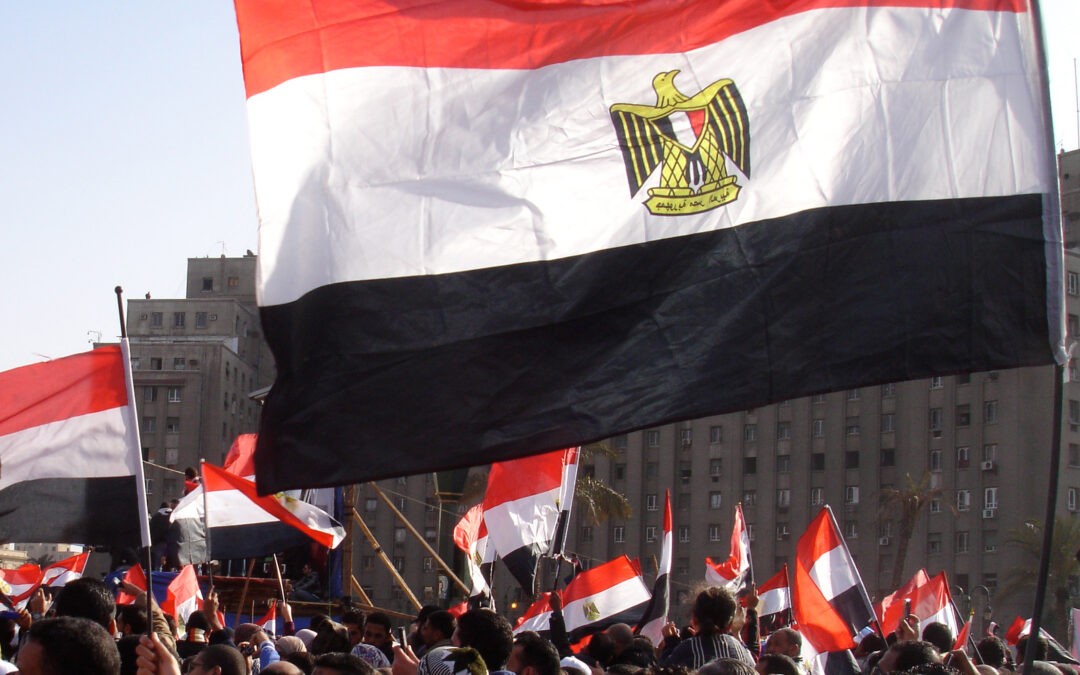
Apr 25, 2013 | News
The ICJ calls on the Egyptian authorities to take immediate steps to guarantee the rights of victims of human rights violations to an effective remedy and to reparation for the serious harm many have suffered.
The authorities should initiate, as a matter of the highest priority, prompt, thorough, independent and impartial investigations into past and ongoing human rights abuses, including cases of arbitrary detention, torture and ill-treatment, and extrajudicial and other unlawful killings.
The statement comes as the ICJ concludes a high-level mission to address the human rights situation in Egypt and to examine the measures being taken by the authorities to address both the legacy of human rights abuses and to ensure accountability for them.
“The Egyptian authorities should ensure that the pattern of widespread and systematic human rights violations committed under the former regime is not repeated. This will involve the comprehensive reform of State institutions and the revision of the national legal framework with a view to ensuring that the rights of victims are safeguarded in line with international standards,” said Justice Kalthoum Kennou, ICJ Commissioner and member of an ICJ mission to Egypt. “Such reforms should target the police and security forces, the Office of the Public Prosecutor, the Forensic Medicine Office and the judicial system as a whole, including by restricting the jurisdiction of the military justice system to exclude civilians and all cases involving human rights violations.”
The ICJ notes that current reparation programmes, established by the government, have a restricted mandate, which has resulted in the arbitrary exclusion of numerous victims and their families from these programmes. They also do not ensure the accessibility of the range of reparations required under international law. Most importantly, such programmes have failed so far to ensure accountability for past and ongoing human rights violations.
“The very few proceedings against State officials have resulted in acquittals or sentences that are not commensurate with the gravity of the crimes committed. In order to end this cycle of impunity, the Egyptian authorities must hold those responsible for gross human rights violations accountable through criminal prosecutions,” said Alejandro Salinas, a Chilean lawyer and member of the ICJ mission. “They should also establish a transitional justice mechanism with sufficient guarantees of independence and with a comprehensive mandate to address the legacy of past and present human rights abuses, while ensuring that impunity does not become entrenched.”
The delegation was led by ICJ Commissioner, Justice Kalthoum Kennou, and Alejandro Salinas, and was supported by ICJ legal advisers, Alice Goodenough and Marya Farah. The delegation met with the then Minister of Justice, Ahmed Mekki, Justice Adel Omar Sherif of the Supreme Constitutional Court, the President and Secretary-General of the National Council for Human Rights, Hossam Al Gheryani and Abdallah El Ashaal, the Director of the National Council for the Care of the Revolution’s Martyrs, Families and Wounded, Khaled Badwy, the Vice President of the Court of Cassation and Secretary General of the High Judicial Council, Justice Mohamed Mahgoub, Chairman of the Human Rights Committee of the Shura Council, Ehab Kharrat, members of the judiciary, the legal profession and civil society, as well as a number of victims, and the families of victims of human rights violations committed before and after the departure of former President Mubarak.
Contact:
Said Benarbia, ICJ Senior Legal Adviser of the Middle East and North Africa Programme, tel: 41 22 979 38 17, e-mail: said.benarbia(a)icj.org
Egypt-ICJ calls auhorities-Press release-2013-Arabic (full text in PDF)
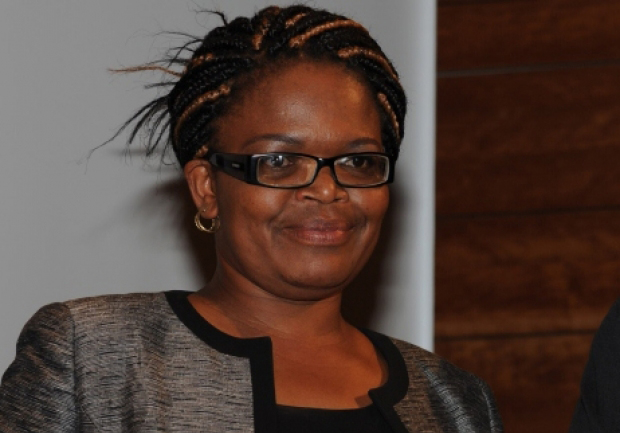
Mar 22, 2013 | News
The ICJ and other legal groups have expressed their outrage at the continued detention of Zimbabwean lawyer and human rights activist, Beatrice Mtetwa, after she was denied bail.
This was despite the fact that Mtetwa was improperly held before the court after the police had refused to comply with a High Court order to release her, the Pan African Lawyers Union (PALU), SADC Lawyers Association (SADC LA) and Southern Africa Litigation Centre (SALC) and the ICJ said.
It is perturbing that the Police would use a lower Court, to undermine a standing decision of a higher Court, and that the lower Court would allow itself to be so used, they also said.
Moreover, it is absurd that Mtetwa, a lawyer of 30 years’ standing in Zimbabwe, could be denied bail on the basis that she would interfere with police investigations, they added.
While the ICJ, PALU, SADC LA and SALC have learnt with disappointment of the postponement of Mtetwa’s bail appeal hearing from the 22nd of March 2013 to the 25th of March 2013, they have faith that Mtetwa will be vindicated and released by the High Court.
The concerted efforts to keep Mtetwa behind bars represent a calculated attempt by sections of the Zimbabwean Government to break her spirit and deter her from representing the many Zimbabweans who daily face harassment and intimidation from the state’s security services.
Over the years, Mtetwa has stood by these victims of government and police repression and is regarded as a hindrance by the police and security sector to their illegal activities.
The action against Mtetwa is a threat to the legal profession in Zimbabwe – intended to alarm lawyers and intimidate them from providing independent representation.
As the country edges towards elections, the persecution of lawyers and other actors can only be expected to escalate, judging from the number of civil society representatives and human rights defenders who have fallen victim to police harassment in the past few weeks.
The police’s actions stand in marked contrast to calls by the most senior political authorities in Zimbabwe for peace and tolerance as the country moves towards elections.
That no heed is paid to these calls by the police force is indicative of the widespread and endemic impunity enjoyed by the security sector. It is the clearest indication that, as matters stand, there exists little prospect for free and fair elections.
The ICJ, PALU, SADC LA and SALC urge the Southern African Development Community (SADC) as the Guarantor of Zimbabwe’s Global Political Agreement and President Jacob Zuma as the mediator in Zimbabwe’s political crisis to take action and urge the Government of Zimbabwe to release Mtetwa from prison and end the politically-motivated persecution of her.
The legal groups also urge the African Union and the international community to prevail upon the Zimbabwean Government to release Mtetwa.
They also call on the police and the judiciary in Zimbabwe to discharge their duties in an independent and impartial manner if the people of Zimbabwe are to have confidence in the judicial system as the country moves towards elections.
Contact:
Arnold Tsunga, ICJ Africa Director, +27 73 131 8411; e-mail: arnold.tsunga(at)icj.org
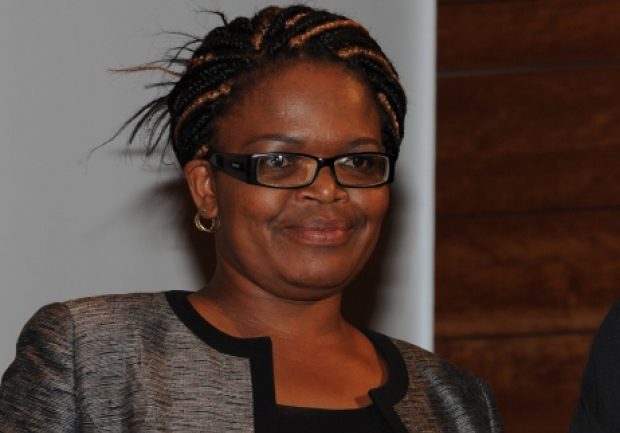
Mar 18, 2013 | News
 The ICJ and other legal groups express their deepest concern at the unlawful arrest and detention of prominent Zimbabwean human rights lawyer, Beatrice Mtetwa and officials of the MDC-T party.
The ICJ and other legal groups express their deepest concern at the unlawful arrest and detention of prominent Zimbabwean human rights lawyer, Beatrice Mtetwa and officials of the MDC-T party.
Beatrice Mtetwa was arrested after attempting to come to the aid of her clients, Thabani Mpofu, Felix Matsinde, Anna Muzvidziwa and Worship Dumba. Mtetwa had sought to ensure that the search of the communications office of the MDC-T and the arrest of the four complied with legal requirements, demanding that the police produce a search warrant. She was instead arrested and charged with “obstructing the course of justice.”
Thereafter, she and the four MDC-T officials were taken to Rhodesville police station in Harare. Lawyers from Zimbabwe Lawyers for Human Rights (ZLHR) worked late into the night of Sunday, 17 March, urgently petitioning the High Court of Zimbabwe to secure Mtetwa’s release. The order was granted just before midnight.
At present it appears that police are seeking to elude compliance with the order as reports indicate that Mtetwa is being transferred from one Harare police station to another as lawyers for Mtetwa seek to serve the court order on different police stations.
The arrest of Mtetwa and the four MDC-T officials is in itself alarming, but that it comes on the heels of a referendum to endorse a new constitution which, whatever its other limitations, contains strong protection of the rights of those arrested and detained, is more distressing still.
Without a clear and unambiguous departure from a past characterized by harassment and intimidation of human rights defenders and of impunity for Zimbabwe’s police and security sector, the promise of the new Constitution will be laid to waste.
The ICJ, Pan African Lawyers Union (PALU), SADC Lawyers Association (SADC LA) and Southern Africa Ligitation Centre (SALC) urge the Zimbabwean police and authorities to respect the Zimbabwean High Court order, to release Mtetwa from detention and to allow her and other human rights defenders to conduct their work unhindered.
Contact:
Arnold Tsunga, ICJ Africa Director, +27 73 131 8411; e-mail: arnold.tsunga(at)icj.org
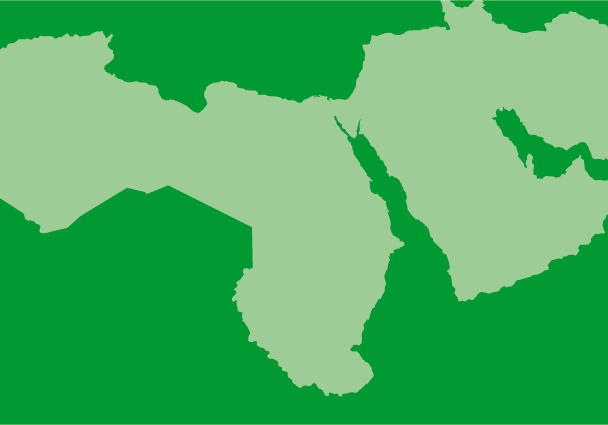
Mar 4, 2013 | News
The ICJ expressed its concern over the criminal trial of 94 individuals, including judges, lawyers, academics, human rights defenders and civil society activists, in the State Security Chamber of the UAE Federal Supreme Court.
Following a wave of arbitrary arrests and detention, which began in March 2012, the case was referred to the Supreme Court on 27 January 2013.
“The ICJ is gravely concerned over the fairness of the upcoming proceedings, including the lack of any right of appeal, the lack of restrictions on the use of evidence obtained through torture or ill-treatment and severe restrictions imposed on the rights of the defence, in contravention of international human rights law, including the Arab Charter on Human Rights, to which the UAE is a party,” said Said Benarbia, ICJ Senior Legal Adviser of the Middle East and North Africa Programme. “Furthermore, allegations of torture and ill-treatment by detainees, including incommunicado detention, prolonged solitary confinement, sleep deprivation and verbal and physical abuse, must be promptly, impartially and thoroughly investigated.”
The ICJ further notes that there have been violations of international fair standards.
These include the failure of State authorities to formally charge defendants, severe restrictions on access to legal counsel, including during questioning and the failure to disclose case files to the defence until a few days before trial.
Until two weeks before the trial, there was a single lawyer acting for all detainees and other lawyers who tried to assist have faced harassment, including detention and deportation, the ICJ says.
The trial is part of a broader crackdown by the UAE authorities in response to a petition signed by 100 academics, legal professionals, and civil society activists, in March 2011, for political reforms and increased public participation in government.
“The ICJ condemns the use of criminal proceedings to suppress peaceful calls for increased democracy as an unlawful restriction on the right to freedom of expression,” Benarbia added. “Extending the clampdown on critics to include numerous members of the legal profession severely compromises the Rule of Law in the UAE.”
Contact:
Said Benarbia, ICJ Senior Legal Adviser of the Middle East and North Africa Programme, tel: 41 22 979 38 17, e-mail: said.benarbia(at)icj.org
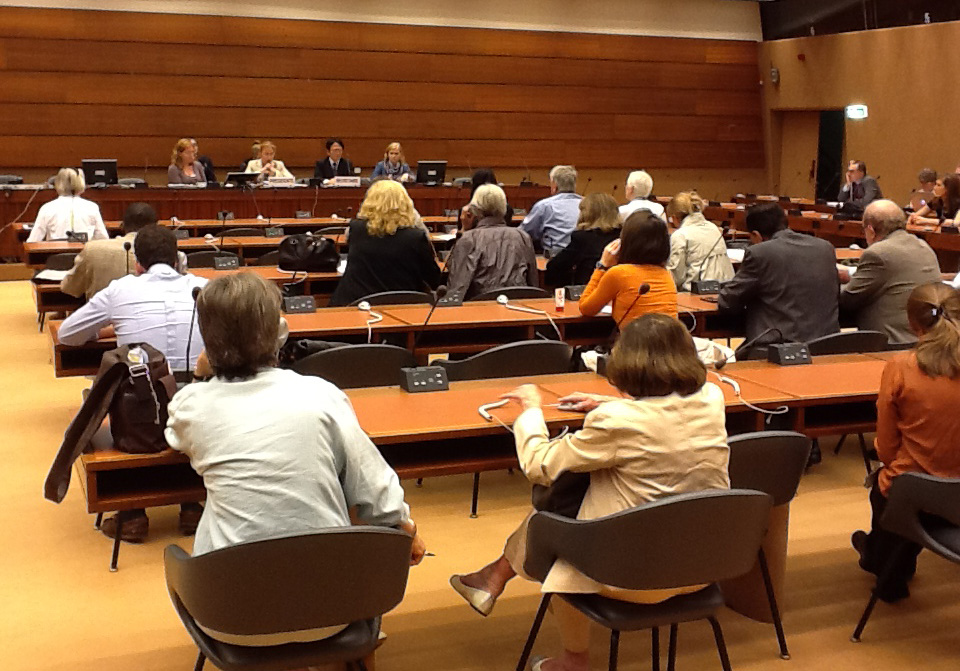
Sep 11, 2012 | Events
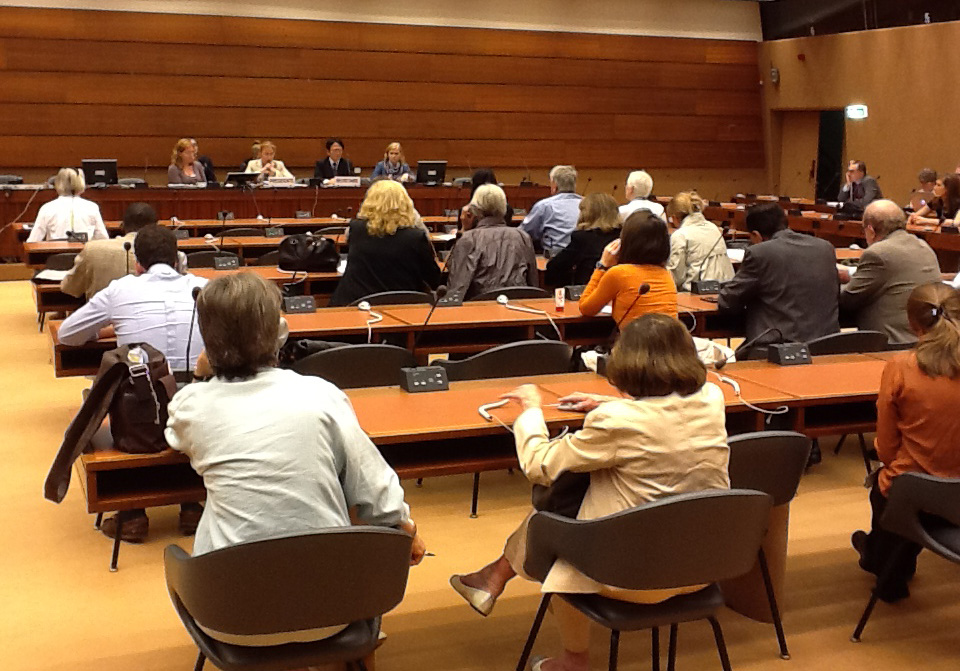 During the 21st session of the UN Human Rights Council (10-28 September 2012), the ICJ and the Geneva Academy of International Humanitarian Law and Human Rights will convene a high-level discussion on ensuring human dignity during detention.
During the 21st session of the UN Human Rights Council (10-28 September 2012), the ICJ and the Geneva Academy of International Humanitarian Law and Human Rights will convene a high-level discussion on ensuring human dignity during detention.
The parallel event will be held in the Palais des Nations in meeting room XXI on Tuesday 25 September 2012 from 14h to 16h.
The event will discuss the need and options for an international instrument clarifying and enhancing the human right legal framework applicable to persons in detention. Panelists include Professor Manfred Nowak, former Special Rapporteur on torture and former member of the Working Group on enforced disappearances; Judge Theodor Meron, Judge on the Appeals Chambers of the ICTY and ICTR; Professor Shaheen Sardar Ali, Vice-Chair of the Working Group on arbitrary detention; and Ian Seiderman, Law and Policy Director of the ICJ. The event will be moderated by Hina Jilani, member of the Panel on Human Dignity and Advocate of the Supreme Court of Pakistan.
The event is open to all persons with access to the Palais des Nations.
HRC21-DetentionEvent-Flyer-2012 (download flyer)
HRC21-DetentionEvent-ConceptNote&BackgroundPaper-2012 (download concept note and background paper)











